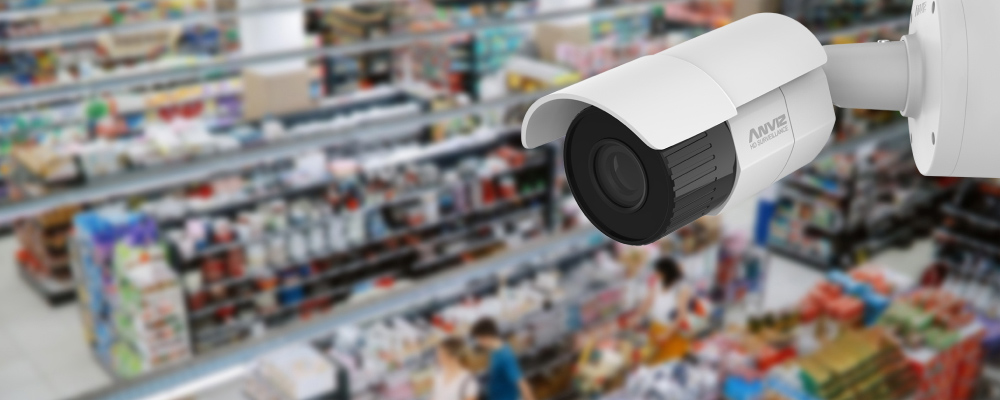Security cameras systems for business
Security cameras have become increasingly common in businesses as a way to deter theft, vandalism and other crimes. Not only can security cameras help prevent these types of incidents from occurring, but they can also provide valuable evidence if something does happen. In this article, we will look at the benefits of security camera systems for businesses, how to choose the right system, and some best practices for installation and use. We will also discuss some potential drawbacks and concerns that businesses should be aware of before implementing a security camera system.
Benefits of Business Security Camera Systems
1.Crime Deterrence - One of the most important benefits of security camera systems is their ability to deter crime. Knowing that there are cameras on the premises can deter would-be criminals from attempting to break in or steal from your business.
2.Evidence for investigations - In the unfortunate event that a crime does occur, security cameras can provide crucial evidence for investigations. Security camera footage can help identify suspects and provide evidence for prosecution.
3.Employee monitoring - Security cameras can also be used to monitor the activities of employees. This can help ensure that employees are following company policies and procedures, and can provide evidence in the event of employee theft or other misconduct.
4. Remote monitoring - Many security camera systems now offer remote monitoring capabilities, allowing business owners to access live footage from anywhere with an Internet connection. This can be especially useful for businesses with multiple locations or for owners who travel frequently.
5. Reduced insurance costs - Some insurance companies may offer discounts on premiums for businesses that have security camera systems installed. This is because security cameras can reduce the risk of theft and other crimes, which can reduce the likelihood of insurance claims.

Choosing the right system
When choosing a security camera system for your business, there are several factors to consider:
1.Indoor vs Outdoor - Will your cameras be used primarily indoors or outdoors? Outdoor cameras need to be weatherproof and able to withstand various environmental conditions.
2.Resolution - Higher resolution cameras provide clearer images, which can be critical in identifying suspects in the event of a crime.
3.Storage - How much footage do you need to store and for how long? Many security camera systems offer cloud storage options, but these can be more expensive than on-premises storage solutions.
4.Motion detection - Some security cameras offer motion detection capabilities, which can help reduce the amount of footage you need to review by recording only when there is activity in the camera's field of view.
5. Night vision - If your business operates at night, consider cameras with night vision capabilities to ensure that you can still capture clear footage in low-light conditions.
Best practices for installation and use
1.Determine your goals - Before installing a security camera system, determine what your goals are for the system. Are you primarily interested in deterring crime, or do you also need to monitor employee activity?
2.Consider Privacy Concerns - If you plan to install security cameras in areas where employees work or customers frequent, be sure to consider privacy concerns. Let employees and customers know that cameras are in use and how the footage will be used.
3.Choose camera locations carefully - Camera placement is critical to maximizing their effectiveness. Cameras should be placed at entry and exit points, near high-value items, and in areas where criminal activity is most likely to occur.
4.Test and maintain your system regularly - Regular testing and maintenance of your security camera system can help ensure that it is functioning properly. This includes testing the cameras, checking the wiring and connections, and making any necessary adjustments.
5.Train Employees - If you plan to use security cameras to monitor employee activity, it is important to train employees on the proper use of the system and any policies or procedures related to its use.
Potential drawbacks and concerns
While security camera systems can provide significant benefits to businesses, there are also some potential drawbacks and concerns to be aware of:
1.Cost - Security camera systems can be expensive, especially when you consider the cost of installation and ongoing maintenance.
2.Privacy Concerns - As mentioned above, privacy concerns are a valid concern when it comes to security cameras in the workplace.
3.False sense of security - While security cameras can help deter crime, they should not be the only security measure in place. A false sense of security can lead to complacency, which can leave your business vulnerable to crime.
4.Technical Issues - Like any technology, security camera systems can experience technical issues that can affect their effectiveness. It's important to have a plan in place to address these issues quickly.
Conclusion
Overall, security camera systems can provide significant benefits to businesses, including deterring crime, providing evidence for investigations and monitoring employee activity. However, it's important to choose the right system, install and use it properly, and be aware of potential drawbacks and concerns. With careful consideration and planning, security camera systems can help keep your business safe and secure.
Mark Vena
Senior Director, Business Development
Past Industry Experience: As a technology industry veteran for over 25 years, Mark Vena covers many consumer tech topics, including PCs, smartphones, smart homes, connected health, security, PC and console gaming, and streaming entertainment solutions. Mark has held senior marketing and business leadership positions at Compaq, Dell, Alienware, Synaptics, Sling Media, and Neato Robotics.

